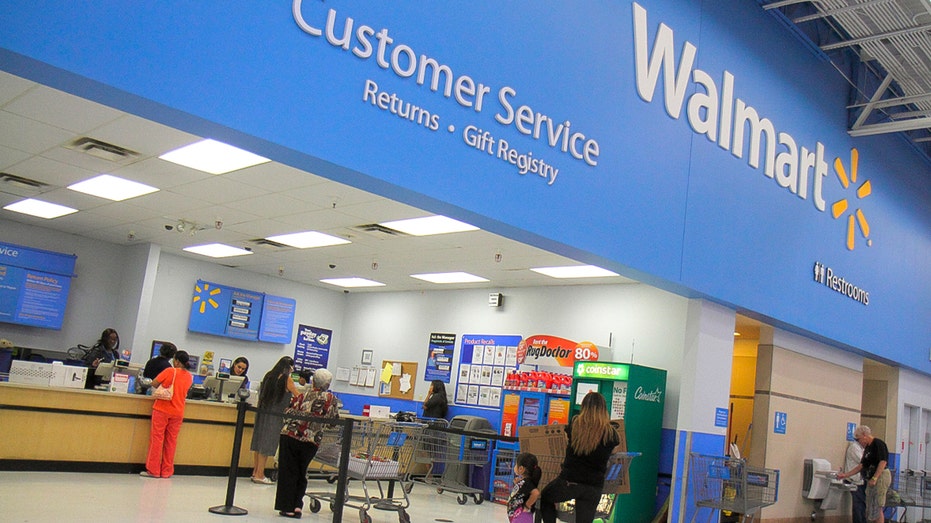Shopping returns top $428B as Amazon, Walmart say keep it
For every $1B in sales, the average retailer incurs $106M in merchandise returns
Consumers collectively returned $428 billion worth of merchandise in 2020. However, some of the county's biggest retailers made it clear they don't want the returns, even after issuing a refund.
The hundreds of billions of dollars in returns over the past year accounted for approximately 10.6% of total U.S. retail sales, according to the National Retail Federation, the nation's largest retail trade group.
CLICK HERE TO READ MORE ON FOX BUSINESS
This year, with the pandemic keeping many consumers out of stores, online returns more than doubled compared to 2019 and represented a "major driver of the overall growth of returns," the NRF said.
In 2020, e-commerce accounted for $565 billion for total sales nationwide. Of the $565 billion, approximately $102 billion of online merchandise was returned, according to the NRF.

Walmart Customer Service desk. (Photo by: Jeff Greenberg/Universal Images Group via Getty Images)
AMAZON, WALMART USING AI TO DECIDE ON ECONOMIC SENSE TO PROCESS A RETURN
The trade group found that for every $1 billion in sales, a retailer will incur $106 million in returns. Retailers also faced a great deal of fraud. For $100 in returned merchandise, retailers lost an estimated $5.90 to fraud, according to the NRF.
In 2020 alone, roughly 5.9% of all returns ended up being fraudulent, which equated to about $25.3 billion.
However, unlike years past, many major retailers are rethinking their return process. In some cases, major big-box stores are even telling the customer to keep the product, depending on if it costs more to process that return.
| Ticker | Security | Last | Change | Change % |
|---|---|---|---|---|
| AMZN | AMAZON.COM INC. | 210.32 | -12.37 | -5.55% |
| WMT | WALMART INC. | 131.18 | +4.24 | +3.34% |
| TGT | TARGET CORP. | 115.56 | +4.66 | +4.20% |
Companies such as Amazon and Walmart have turned to artificial intelligence to determine the cost benefit of processing a return, according to the Wall Street Journal.
GET FOX BUSINESS ON THE GO BY CLICKING HERE
It can be cheaper to issue a refund and let a customer keep the product, especially if it is inexpensive or large enough where it would incur a big shipping fee.
In some cases, Target has also issued refunds to customers while encouraging them to keep or donate the product, the Journal reported.
One consumer in Washington told the Journal she reaped the benefits of this new tactic when trying to return products at Target and Walmart.
“They were inexpensive, and it wouldn’t make much financial sense to return them by mail,” Lorie Anderson said.




















